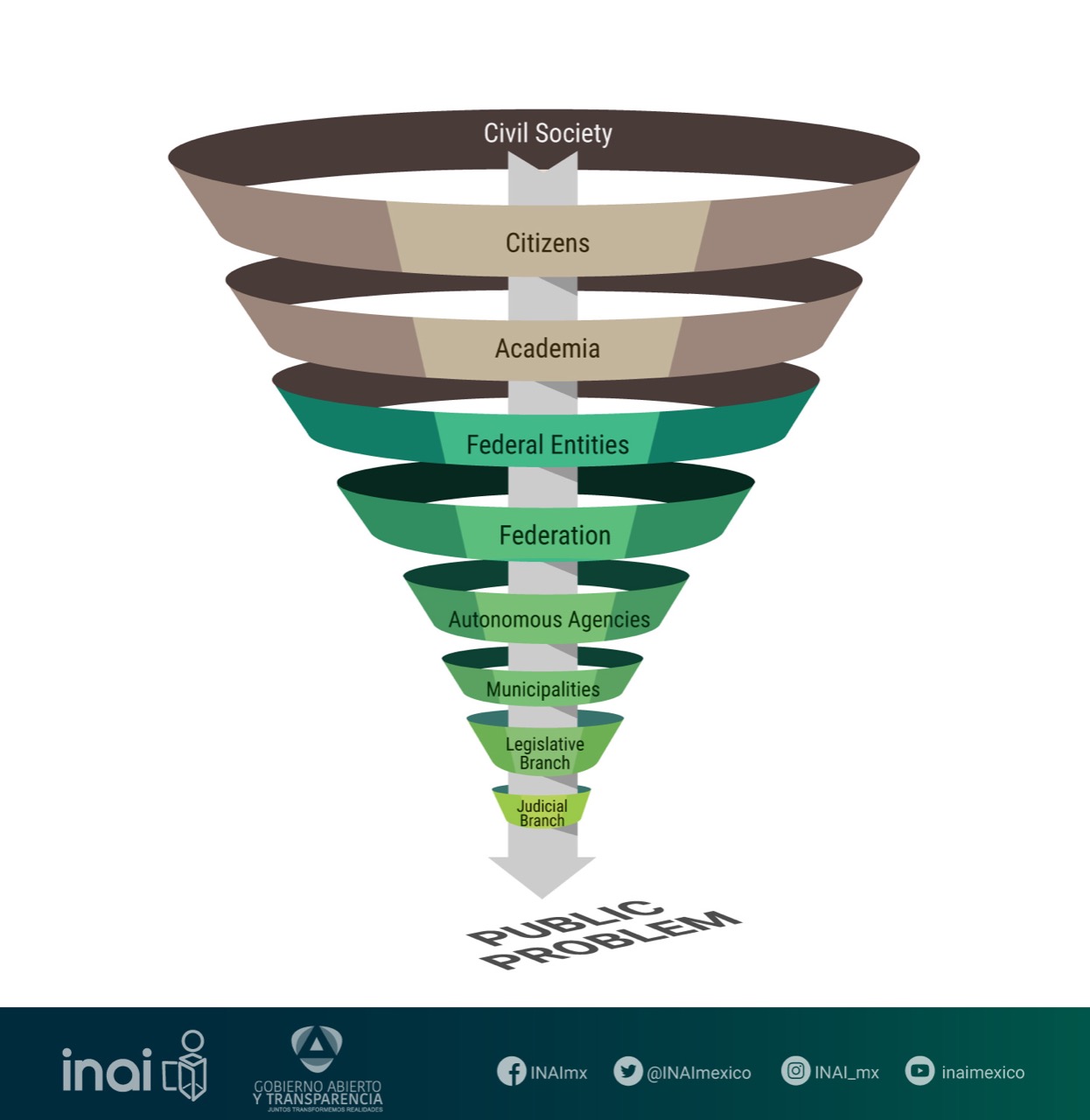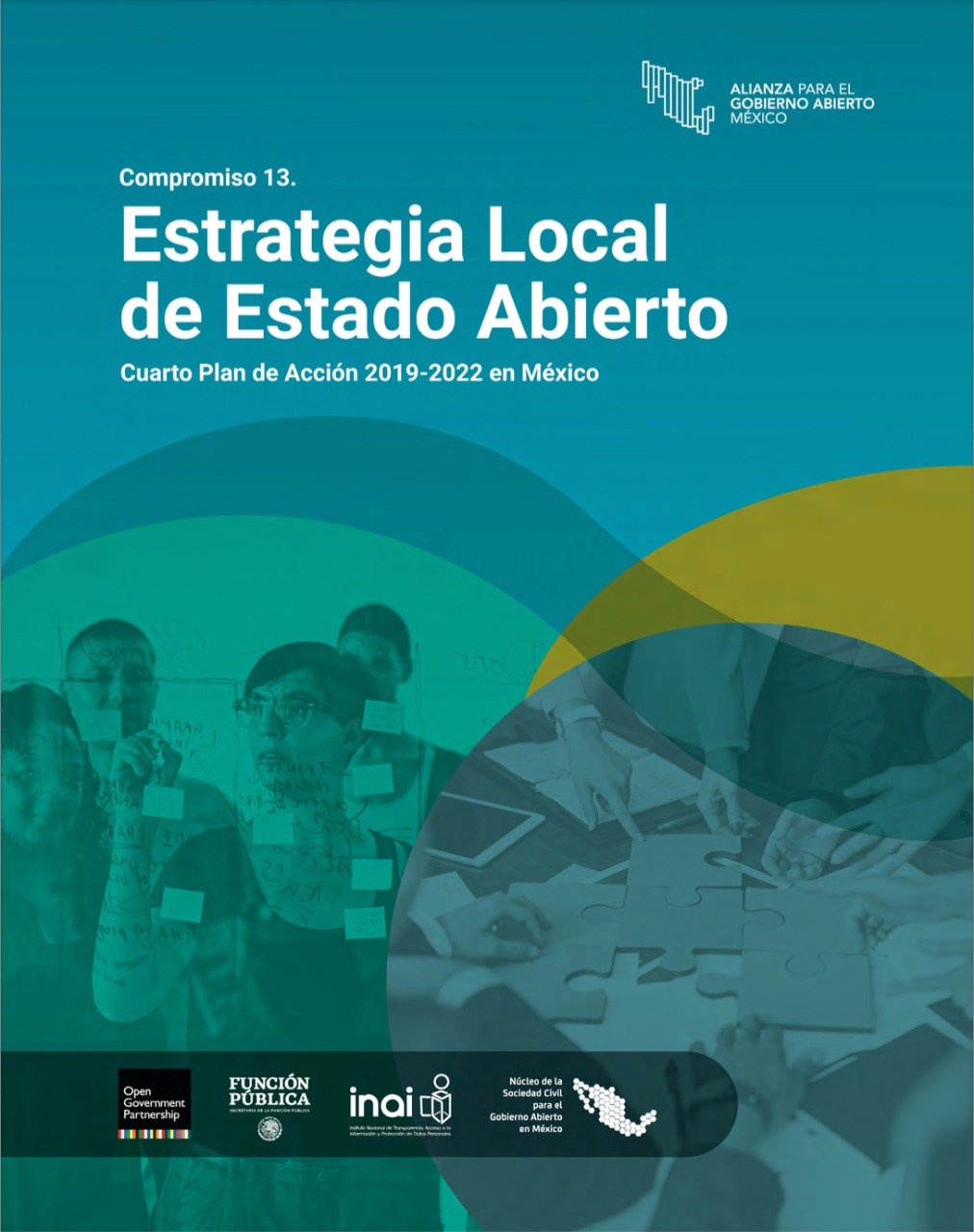
Oscar Oslak, a well-known international researcher on public administration, defines in his book: "From open government to the open State in Latin America and the Caribbean of ECLAC", the concept of Open State as:
"The formally expressed will of governments, parliaments, courts of justice, public control bodies or other state or semi-state institutions to promote the opening of their data repositories, citizen access to information, social participation in the different phases of the cycle of public policies, accountability and, in general, the control of public management by citizens."
On the other hand, the document entitled Recommendation of the OECD Council on Open Government, conceptualizes an Open State as:
"When the executive, legislative and judicial branches, independent public institutions and all government orders - recognizing their respective roles, prerogatives and overall independence under their current legal and institutional frameworks - collaborate, exploit synergies and share good practices and lessons learned among themselves and with other stakeholders to promote transparency, integrity, accountability and stakeholder engagement, in support of democracy and inclusive growth."
Similarly, in another OECD document, it is established that an Open State entails that open government reforms are coordinated and implemented by all branches of the state, as well as by all government orders.
Local Open Government Strategy
As part of Commitment 13: Local Open Government Strategy of the Fourth Action Plan of the Open Government Partnership in Mexico, a diagnosis was developed with the contributions of members of Local Technical Secretariats of some entities, people developing open government practices, members of different civil society organizations and regulated entities of the Federal Public Administration. This diagnosis analyzed good open government practices, the creation of dialogue spaces and the accumulated experiences of the participants. Consequently, we realized that those who work daily on topics such as open government, open justice, open congress, open state, citizen participation, transparency, among others, did not have a clear definition of these. Additionally, there were many responses which mentioned that there was a lack of collaboration and joint work between civil society, the three branches of government, academia, municipalities, entities and the federation.
Thus, taking concepts from the Open Government Partnership (OGP), the National Transparency System (SNT), the United Nations Development Program (UNDP), the Mexican Congress (Chamber of Deputies and Senate of the Republic), the World Justice Project, or civil society with the initiative #LoJustoEsQueSepas, a Methodology that highlights the diversity in the models of the subjects that are part of the Open State in Mexico (Open Government, Open Congress or Parliament, Open Justice and Open Municipality) was developed. This methodology includes the definitions of common principles such as collaboration, transparency, citizen participation, open data, innovation, accountability, and the use of information and communication technologies (ICT).
Based on the diagnosis and methodology, we realized that it was not worthwhile to create a National Open Government Strategy, but rather to consolidate a Local Open State Strategy. This change means that the efforts of all parties focus in a single space to change people's lives. The logic of this is similar to a funnel, in which civil society, the three government branches, the three government orders, institutions and citizens, work together in an orderly manner to solve a public problem.

The first stage of the Local Open State Strategy is called "Call for proposals" or "Calls for proposals". From October 11 through October 25, 2022, INAI along with GESOC, Development Agency, are calling for people knowledgeable on public policy, governance, public agenda, etc., to identify issues affecting targeted populations through a simple on-line survey of 25 questions. This questionnaire aims to identify a public problem that affects a specific population so that civil society, academia, the three government orders and the three government branches work together to solve it.

01800.835.43.24

Office Hours: Monday-Thursday, 9:00-18:00 and Friday 09:00-15:00.

Insurgentes Sur No. 3211 Col. Insurgentes Cuicuilco, Delegación Coyoacán, C.P. 04530
Our Newsletter is the national Open Government Guide.
It is quarterly updated.
Del responsable de tratar sus datos personales
El Instituto Nacional de Transparencia, Acceso a la Información y Protección de Datos Personales (INAI o Instituto), los cuales serán protegidos conforme a lo dispuesto en la Ley General de Protección de Datos Personales en Posesión de Sujetos Obligados, y demás normatividad que resulte aplicable.
Finalidades
Los datos personales que recabaremos los utilizaremos para las siguientes finalidades:
- Enviar periódicamente un boletín con información seleccionada por el INAI para promover el derecho a la información.
- Integrar un registro de correos electrónicos para enviar invitaciones y/o eventos asociados a las materias de Gobierno Abierto, Transparencia Proactiva, Rendición de Cuentas, Participación Ciudadana, Datos Abiertos, Desarrollo Sostenible, Gobierno Electrónico e Innovación gubernamental o Cívica.
Para esta última finalidad requeriremos de su consentimiento el cual podrá manifestar al momento de registrar su correo electrónico.
Usted podrá consultar el aviso de privacidad integral en el siguiente link web: http://inicio.inai.org.mx/SitePages/Avisos-de-Privacidad.aspx
Fecha de elaboración del aviso de privacidad: 14 de septiembre de 2018.
This is a Website of the National Institute for Transparency, Access to Information and Personal Data Protection, which management is in charge of the General Head Office of Open Government and Transparency. The published information and the document collection are of open access under the terms of the following license:

This work is under the Creative Commons Attribution-Noncommercial-ShareAlike l 4.0 International License.




